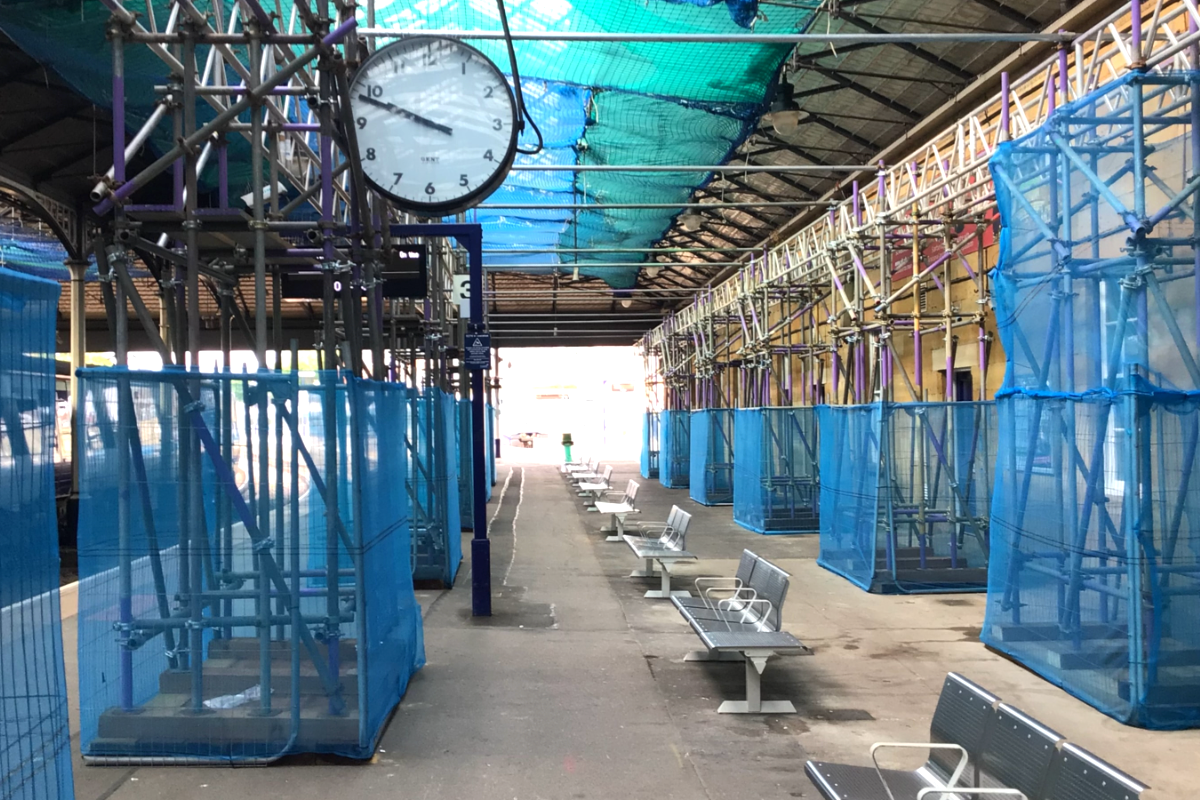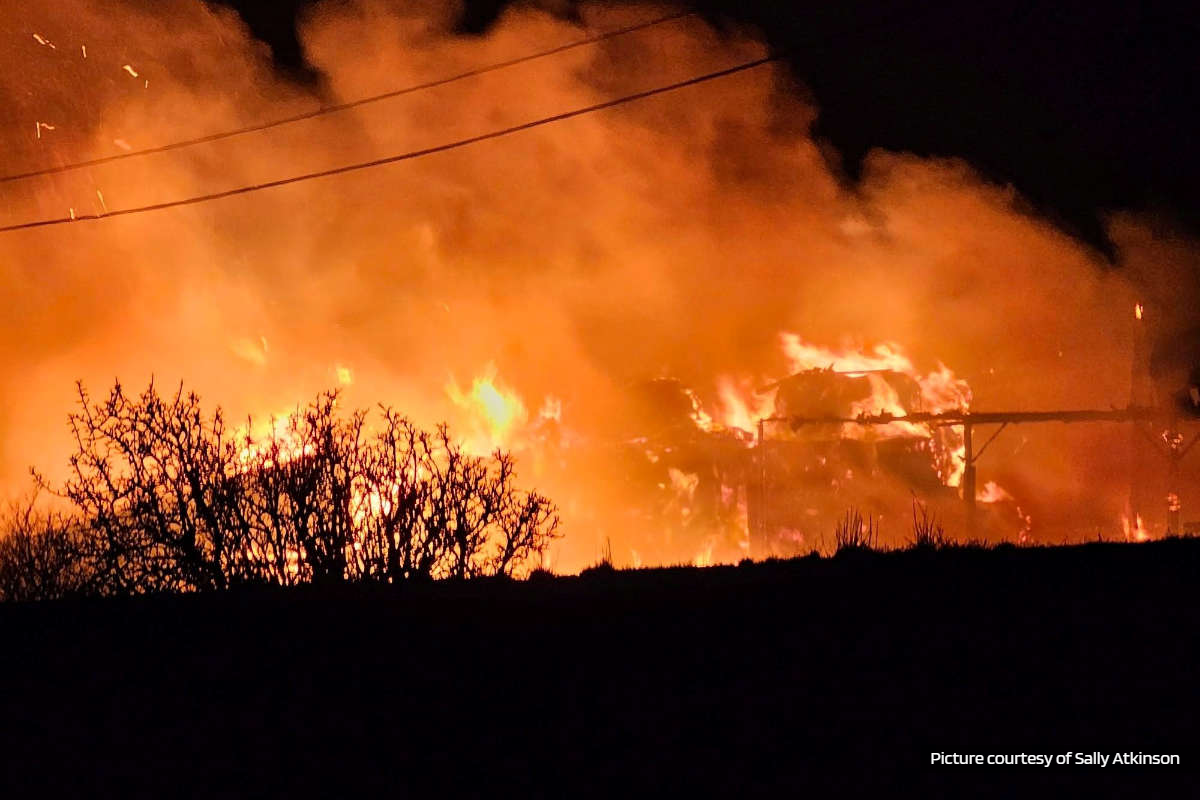
North Yorkshire Council is to halve the amount of locality funding available to councillors, reducing it from £10,000 to £5,000 annually from April.
This decision comes as the council seeks to find savings following a reported £6 million reduction in its finances after the local government funding settlement was announced.
The locality grant is an amount of money which each North Yorkshire Councillor can distribute to community projects in their area. It can be used for a range of different purposes and is often used to attract matched funding from other organisations.
The reduction from £10,000 to £5,000 was approved at the authority's budget meeting last week and raised strong opposition from many councillors.
Councillor Lindsay Burr described the cut as a "backward step"
Councillor Gareth Dadd, the deputy leader and executive member for finance and resources, had defended the proposed budget cut at a council executive committee meeting. Dadd stated,
"If we’re serious as members in delivering a sustainable council, we’ve got to play our part and frankly I don’t think we can justify the full £10,000 going forward".
Derwent Valley & Moor councillor, David Jeffels stated that while it is disappointing they have to be realistic and look at the opportunities to continue to support local communities.
The proposal has been met with dismay from some opposition councillors, with Liberal Democrats urging the council to suspend the cut for 12 months to allow officers to assess the social value of the grants to communities. Councillor Steve Mason stated that, "The locality budget delivers genuine actions into the heart of the community," and that, "If we lose these grants so much community action will be lost. The wider negative impact across North Yorkshire will be a scandal".
Other councillors echoed these concerns, Eastfield Councillor, Tony Randerson, expressed concern that without this funding, vital community support for organisations like the scouts and cheerleaders would suffer. He criticised the decision as "disgraceful" and "not warranted".
Weaponness & Ramshill Councillor, Rich Maw, stated that the grants are vital and essential to the most deprived areas.
At the meeting on Friday councillors approved the new budget for the authority which will see council tax rise by 4.99%. The council will aim to make savings of £34.3m in the next financial year rising to £63.2m the following year but stresses that even with those savings there will be a recurring annual shortfall of £34.4m
The spending reductions come as the council says that the 2025/26 Provisional Local Government Finance Settlement, the money it receives from the government, was "very disappointing for the Council".
Some of the headlines of the announcement for NYC included:
- ability to raise basic Council Tax by up to 2.99% in 2025/26 before triggering a referendum.
- ability to levy an adult social care (ASC) precept equivalent to a 2% increase on the whole council tax base.
- government projected that the overall core spending power for North Yorkshire Council will increase by 3.47% (against an all England average increase of 6.0%). This is on the assumption that the Council will increase council tax up to the referendum limit (4.99%)
- Rural Services Delivery Grant – grant ceased at a loss of £14.3m per annum
- A new Children’s Social Care Prevention Grant has been introduced for 2025/26 and the provisional allocation for North Yorkshire is £1.1m.
- In recent years the settlement has included a Funding Guarantee Grant to ensure that no council received less than a 4% increase in their core spending power. For 2025/26 this guarantee has been reduced to 0% (i.e. cash flat) which means that, despite the significant loss of rural services delivery grant, this was more than offset in cash terms by the assumed increase in council tax so the council is not eligible for this funding
- A grant of £15.7m is expected in 2025/26 for Extended Producer Responsibility – payments from producers of packaging and waste etc. In future years the totals will be dependent on activity, but income will decline over time and there are expenditure requirements so a recurring benefit of £2.3m per annum is estimated by 2029/30




 Injured Yorkshire Coast Seal Back in the Water
Injured Yorkshire Coast Seal Back in the Water
 Flamingo Land Welcomes Baby Giraffe
Flamingo Land Welcomes Baby Giraffe
 Scarborough and Whitby MP to Launch Petition for Return of Stroke Services
Scarborough and Whitby MP to Launch Petition for Return of Stroke Services
 UK Mayors Being Urged to Buy Scarborough Buses
UK Mayors Being Urged to Buy Scarborough Buses
 Free Music Events in Scarborough to Raise Funds for Andy's Man Club
Free Music Events in Scarborough to Raise Funds for Andy's Man Club
 Scarborough's Cross Lane Hospital Receives Heartfelt Gift
Scarborough's Cross Lane Hospital Receives Heartfelt Gift
 Saint Catherine’s Becomes First UK Hospice to Launch Masonic Aware Initiative
Saint Catherine’s Becomes First UK Hospice to Launch Masonic Aware Initiative
 Candidates Confirmed for First Scarborough Town Council Elections
Candidates Confirmed for First Scarborough Town Council Elections
 Scarborough Station Set for Multi-Million-Pound Roof Renovation
Scarborough Station Set for Multi-Million-Pound Roof Renovation
 Renewed Appeal Following "Shocking" Arson in Whitby
Renewed Appeal Following "Shocking" Arson in Whitby
 Six Candidates Standing to Become First Elected Mayor of Hull and East Yorkshire
Six Candidates Standing to Become First Elected Mayor of Hull and East Yorkshire
 Construction to Start on Whitby Maritime Hub
Construction to Start on Whitby Maritime Hub








Comments
Add a comment